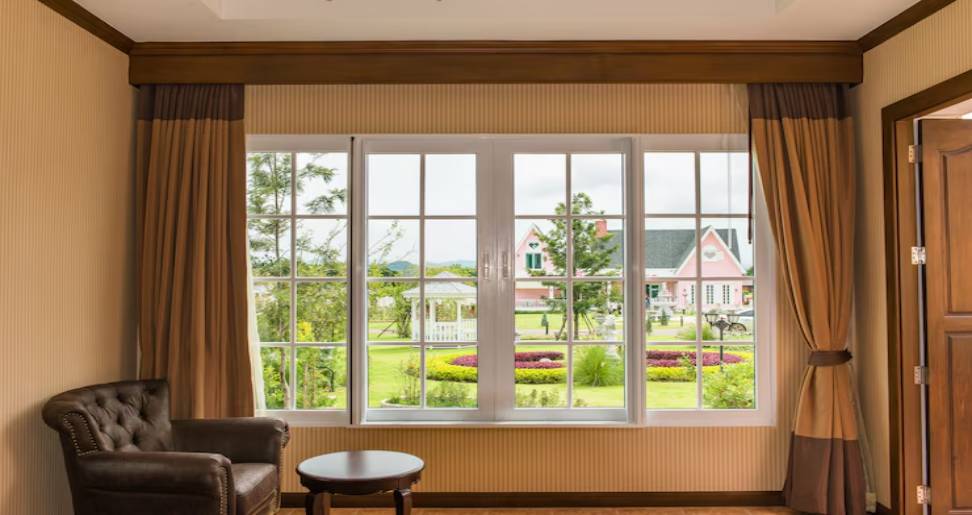Table of Contents
- What Are Energy-Efficient Windows?
- Benefits of Energy-Efficient Windows
- Types of Energy-Efficient Windows
- How to Choose the Right Windows
- Installation and Maintenance Tips
- Cost vs. Savings Analysis
Upgrade your home’s comfort and efficiency with energy-saving windows! This guide explores how these windows can lower energy bills, improve insulation, and create a more peaceful environment. Invest in a more intelligent home that saves you money and feels better.
What Are Energy-Efficient Windows?
Understanding the numerous types of energy-efficient windows and following recommended installation and maintenance procedures can help you fully benefit from them. These windows usually include several glass panes, unique coatings, and gas fills to improve insulation. These innovative windows curb energy loss and help control moisture levels within your home, making interior spaces more comfortable and healthier. In addition to their energy-saving potential, Energy-efficient home windows available offer benefits beyond simple utility bill reductions.
With technology advancing, modern windows now have advanced glazing and innovative materials to enhance their performance significantly. These windows are crafted to stabilize indoor temperatures while minimizing the influx of external noise. This feature is beneficial for homes near busy roads or in noisy metropolitan regions since it dramatically enhances the quality of life for inhabitants.
Benefits of Energy-Efficient Windows
Investing in energy-efficient windows has several advantages. They can lower utility bills, improve indoor air quality, and reduce noise pollution. According to an informative article by the U.S. Department of Energy, energy-efficient windows offer long-term savings and contribute to environmental sustainability. Their efficient design helps lower your household’s carbon footprint, contributing to a more sustainable future.
Beyond the obvious financial savings, these windows can dramatically increase the comfort level of your home. They help maintain a consistent indoor climate by effectively blocking heat during the summer and retaining it during the winter. Energy-efficient windows can also reduce condensation, preventing mold growth and associated health risks. They also protect your furnishings, carpets, and artwork from harmful UV rays, extending their lifespan.
Types of Energy-Efficient Windows
- Double Pane Windows
- Triple Pane Windows
- Low-E Glass Windows
- Gas-Filled Windows
- Composite Frame Windows
Every kind has unique benefits that might change based on your demands and residence climate. For instance, gas-filled windows offer superior insulation to traditional air-filled panes, while Low-E glass windows are excellent for blocking ultraviolet light. Double and triple-pane windows provide layered protection, enhancing insulation and noise reduction. Composite frame windows, on the other hand, offer excellent durability and low maintenance.
Opting for the correct type of windows involves understanding the materials and technologies that best suit your environmental conditions and lifestyle. By considering variables like your windows’ U-factor and solar heat gain coefficient (SHGC), you can make an informed choice.
How to Choose the Right Windows
Choosing the right energy-efficient windows depends on various factors, such as your climate, home design, and specific energy-saving goals. It’s also essential to look for windows with the Energy Star label, as they’re independently certified for energy efficiency. Your choice will depend on whether you need more insulation or better light diffusion, among other factors. For instance, homes in colder climates might benefit more from triple-pane windows, whereas those in warmer areas might prefer Low-E windows reflecting heat.
Consulting with experts and considering regional guidelines can help you choose the window type that best suits your needs. Reviews and recommendations from previous consumers can also provide practical insights. Furthermore, software tools are available to simulate various window types’ energy savings and comfort levels, providing another layer of decision-making support.
Installation and Maintenance Tips
Practical installation and upkeep are essential for energy-efficient windows to function at their best. Windows’ effectiveness is maximized when installed appropriately, which is ensured by hiring a professional. Inadequate installation might cause air leaks and lessen an energy-efficient window’s performance.
Routine maintenance, such as cleaning and seal integrity checks, is equally necessary. Regular inspections prevent minor problems from growing into bigger ones. Additionally, ensuring your windows are properly locked and sealed during extreme weather can further boost their efficiency. Even small actions like removing debris from window tracks and ensuring that seals are intact can significantly impact performance.
Cost vs. Savings Analysis
Energy-efficient windows might come with a hefty upfront cost, but over time, the savings on power costs generally outweigh this cost. A recent analysis by Forbes highlights that homeowners can recover much of the cost through reduced energy bills and increased home value. The ROI on energy-efficient windows is evident in monthly savings and the increased resale value of homes equipped with these modern features.
Moreover, the financial benefits can extend to various home improvement incentives and tax credits for eco-friendly upgrades. Taking full advantage of these opportunities can further lower the overall cost of your investment. Understanding the balance between upfront costs and long-term savings can offer a clearer financial picture, allowing you to decide more straightforwardly to invest in energy-efficient windows.
Key Takeaways
- Energy-efficient windows are crucial in reducing energy consumption and lowering utility bills.
- Modern window technology can significantly enhance home comfort and reduce noise pollution.
- Proper installation and maintenance of energy-efficient windows are critical to their performance.
- Investing in energy-efficient windows can increase your home’s value and contribute to environmental sustainability.
Also Read:-
- Catalytic Converter Price
- All You Need To Know About Geometry Spot
- Kevin Hart net worth, lifestyle and updates in 2024

